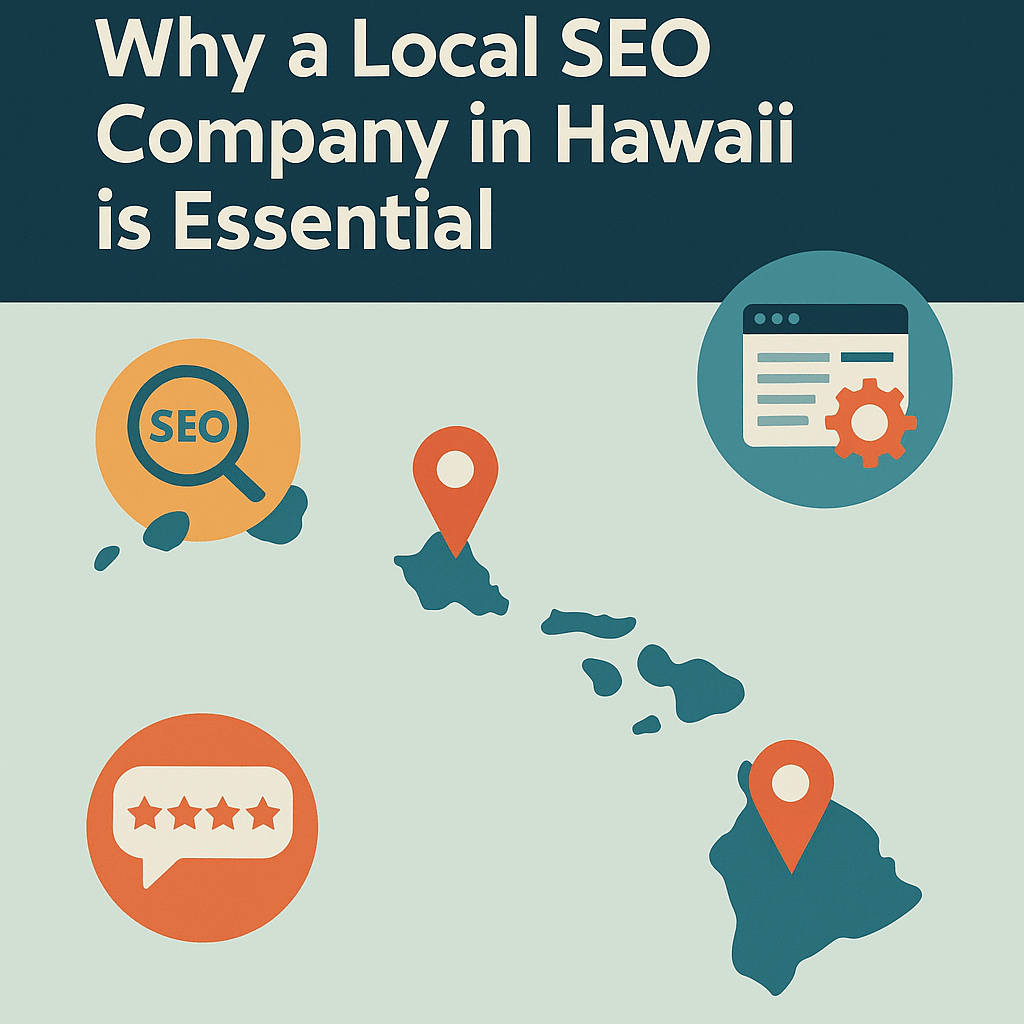In order to achieve optimal SEO success in the competitive construction industry, it is essential to have a comprehensive construction keywords list that includes a range of strategic keywords and phrases. These keywords play a crucial role in improving visibility and driving targeted traffic to construction websites.
When developing a construction keywords list, it is important to consider both commercial intent and informational intent keywords. Commercial intent keywords, such as “construction companies near me” and “new home construction,” are valuable for attracting potential customers who are ready to make a purchase. On the other hand, informational intent keywords, like “siding repair cost” and “vinyl siding installation tips,” help establish authority and provide valuable information to potential customers.
These keywords should be strategically incorporated into various elements of a website, including title tags, meta descriptions, headers, and body content. It is crucial to avoid keyword stuffing and focus on using LSI (latent semantic indexing) keywords to enhance the relevance and context of the content.
In addition to keyword optimization, other SEO strategies such as on-page SEO, off-page SEO, local SEO, and website maintenance should be implemented to maximize visibility and improve search engine rankings. Leveraging social media platforms can also generate buzz and attract potential customers.
Ultimately, partnering with an experienced SEO agency can further enhance SEO efforts and ensure a comprehensive and targeted approach to achieving optimal SEO success in the construction industry.
Key Takeaways:
- A comprehensive construction keywords list is essential for achieving optimal SEO success in the construction industry.
- Include both commercial intent and informational intent keywords in the keywords list.
- Strategically incorporate keywords into various elements of a website, such as title tags, meta descriptions, headers, and body content.
- Avoid keyword stuffing and use LSI keywords to enhance relevance and context.
- Implement other SEO strategies like on-page SEO, off-page SEO, local SEO, and website maintenance.
- Leverage social media platforms to generate buzz and attract potential customers.
- Consider partnering with an experienced SEO agency for expert guidance and support.
Understanding the Significance of Construction Keyword Research
Construction keyword research plays a crucial role in crafting an effective SEO strategy, as it helps identify the most popular and relevant keywords to target for optimal visibility and organic traffic. By conducting thorough research, construction businesses can gain valuable insights into what potential customers are searching for online.
When conducting construction keyword research, it is important to consider both commercial intent and informational intent keywords. Commercial intent keywords, such as “construction companies near me” or “new home construction,” are targeted towards users who are actively looking for construction services. Including these keywords in website content and meta tags can help attract potential customers who are ready to make a purchase or hire a construction company.
On the other hand, informational intent keywords, like “siding repair cost” or “vinyl siding installation tips,” are targeted towards users who are seeking information and advice. By incorporating these keywords into blog posts or informative articles, construction businesses can establish themselves as industry experts and attract users who may eventually convert into paying customers.
It is important to avoid keyword stuffing, as search engines can penalize websites that engage in this practice. Instead, focus on incorporating keywords naturally and strategically throughout the website’s content. Additionally, using LSI (Latent Semantic Indexing) keywords can help improve the relevance and context of the content, further enhancing its visibility in search engine results.
| Key Takeaways: |
|---|
| Construction keyword research helps identify popular and relevant keywords for optimal visibility and organic traffic. |
| Consider both commercial intent and informational intent keywords for a well-rounded SEO strategy. |
| Avoid keyword stuffing and incorporate keywords naturally and strategically. |
| Use LSI keywords to enhance the relevance and context of the content. |
Leveraging Construction Keyword Planner and Tools
The construction industry can leverage the power of construction keyword planner and tools to gain valuable insights into keyword analysis, optimization, and performance tracking. By utilizing these resources, construction businesses can develop an effective SEO strategy that drives targeted traffic and improves search engine rankings.
One of the key benefits of using a construction keyword planner is the ability to identify high-performing keywords that are relevant to the industry. These tools provide data on search volume, keyword difficulty, and competition, allowing businesses to prioritize their efforts and focus on keywords that will yield the best results. By incorporating these keywords into website content, title tags, and meta descriptions, construction companies can increase their visibility and attract potential customers.
In addition to keyword analysis, construction keyword tools also offer optimization features that help businesses enhance the relevance and context of their content. These tools suggest related keywords, also known as LSI (latent semantic indexing) keywords, which not only improve SEO but also provide a better user experience by delivering more comprehensive and informative content.
Table: Benefits of Leveraging Construction Keyword Planner and Tools
| Benefits | Description |
|---|---|
| Identifying high-performing keywords | Gain insights into keywords with high search volume and low competition to prioritize SEO efforts. |
| Optimizing content relevance | Discover related keywords to enhance the context and relevance of website content. |
| Tracking keyword performance | Monitor the performance of keywords and make data-driven adjustments to improve SEO strategy. |
Furthermore, construction keyword tools offer performance tracking capabilities, allowing businesses to monitor the progress of their SEO efforts. These tools provide data on keyword rankings, organic traffic, and conversion rates, enabling companies to evaluate the effectiveness of their strategies and make data-driven adjustments as needed.
In conclusion, leveraging construction keyword planner and tools is essential for maximizing SEO success in the construction industry. By utilizing these resources, businesses can identify high-performing keywords, optimize content relevance, and track keyword performance to drive targeted traffic, improve visibility, and attract potential customers.
Key Elements of a Successful Construction Keywords List
A successful construction keywords list should encompass a combination of popular construction keywords, relevant construction-related keywords, and strategically optimized SEO keywords to enhance visibility and attract targeted traffic. By including a variety of keywords, construction websites can effectively target different user intents, whether it’s commercial queries related to construction services or informational queries seeking tips and advice.
Table 1 below provides an example of a comprehensive construction keywords list:
| Keyword Type | Examples |
|---|---|
| Popular Construction Keywords | construction companies near me, new home construction, residential remodeling |
| Construction-Related Keywords | siding repair cost, vinyl siding installation tips, best roofing materials |
| Strategically Optimized SEO Keywords | affordable kitchen remodeling, experienced construction contractors, commercial construction services |
It is important to strategically incorporate these keywords into different elements of a website, including title tags, meta descriptions, headers, and body content. However, it is crucial to avoid keyword stuffing, as search engines prioritize high-quality, relevant content.
By utilizing LSI (Latent Semantic Indexing) keywords, which are variations and synonyms of the main keywords, construction websites can enhance the relevance and context of their content. This helps search engines understand the topic better and improves the chances of ranking higher in search results.
In addition to keyword optimization, construction businesses can further enhance their SEO efforts through on-page SEO techniques like optimizing URL structures, using descriptive alt tags for images, and improving site speed. Off-page SEO, such as building quality backlinks and generating social media buzz, can also positively impact search engine rankings. Local SEO strategies, such as optimizing for location-based keywords and creating Google My Business profiles, are crucial for attracting customers in specific geographic areas.
Partnering with an experienced SEO agency can provide construction businesses with valuable insights and expertise to implement effective SEO strategies tailored specifically for the industry. With a comprehensive construction keywords list and solid SEO techniques in place, businesses can significantly improve their online visibility, attract targeted traffic, and ultimately achieve success in the competitive construction industry.
Enhancing SEO with Construction Keyword Analysis
Construction keyword analysis empowers businesses to refine their SEO strategy by evaluating keyword competition, search volume, and relevancy to optimize construction keywords for maximum search engine visibility. By conducting thorough keyword research and analysis, construction companies can gain valuable insights into their target audience’s search behavior and preferences. This information helps them choose the most relevant and high-quality keywords to incorporate into their website content and meta tags.
One effective way to analyze construction keywords is by using keyword research tools. These tools provide valuable data on search volume, competition, and related keywords. They allow businesses to identify the most popular and effective keywords in the construction industry. By leveraging these tools, companies can uncover untapped keyword opportunities and optimize their website content accordingly.
It’s also important to consider the intent behind the keywords. Understanding whether a keyword has commercial intent (indicating a potential customer looking for a product or service) or informational intent (seeking information or advice) helps in crafting targeted and relevant content for the audience. By aligning keywords with the intent of the target audience, construction companies can improve their search engine rankings and attract qualified organic traffic.
Benefits of Construction Keyword Analysis
The benefits of construction keyword analysis extend beyond SEO performance. It can also inform content strategy, allowing businesses to develop valuable, informative, and engaging content that addresses their audience’s needs and interests. By incorporating the right keywords in their content, construction companies can position themselves as industry experts and build trust with their target audience.
| Benefits of Construction Keyword Analysis: | |
|---|---|
| Increased search engine visibility | Improved website traffic |
| Higher conversion rates | Enhanced content relevance |
| Competitive advantage | Targeted audience reach |
In conclusion, construction keyword analysis is a powerful tool that allows businesses in the construction industry to optimize their SEO efforts and improve their online visibility. By understanding the search behavior of their target audience and strategically incorporating relevant keywords into their website content, companies can attract qualified traffic and increase their chances of conversion. By leveraging keyword research tools and staying up-to-date with industry trends, construction companies can stay ahead of their competitors and achieve long-term SEO success in the construction industry.
Implementing SEO Strategies in the Construction Industry
Implementing a range of SEO strategies, including on-page SEO, off-page SEO, local SEO, and website maintenance, is crucial for achieving optimal visibility and attracting targeted traffic in the construction industry. By utilizing these strategies effectively, construction companies can increase their online presence and connect with potential customers who are actively searching for construction services.
On-Page SEO
On-page SEO involves optimizing various elements of a website to improve its search engine rankings. This includes optimizing title tags, meta descriptions, headers, and body content with relevant construction industry keywords. By creating high-quality, informative, and engaging content, construction companies can attract both search engines and users, leading to increased visibility and organic traffic.
Off-Page SEO
Off-page SEO focuses on improving a website’s authority and reputation through external factors. This includes building high-quality backlinks from reputable websites, engaging in social media marketing, and participating in online communities relevant to the construction industry. By establishing a strong online presence and generating buzz, construction companies can boost their credibility and attract more targeted traffic.
Local SEO
Local SEO is crucial for construction companies that serve a specific geographical area. By optimizing their website and online profiles for local keywords, such as “construction companies near me” or “home renovation contractor [location],” businesses can increase their visibility in local search results. This includes creating a Google My Business profile, obtaining positive customer reviews, and ensuring accurate and consistent NAP (name, address, phone number) information across online directories.
Website Maintenance
Regular website maintenance is essential for maintaining optimal SEO performance. This includes updating website content, fixing broken links, improving website speed and performance, and ensuring mobile responsiveness. By providing a seamless user experience and adhering to search engine guidelines, construction companies can enhance their website’s visibility and user engagement.
| SEO Strategy | Description |
|---|---|
| On-Page SEO | Optimizing website elements to improve search engine rankings. |
| Off-Page SEO | Building backlinks, engaging in social media marketing, and participating in online communities. |
| Local SEO | Optimizing website and online profiles for local keywords to improve local search visibility. |
| Website Maintenance | Regular updates, fixing broken links, improving website performance, and ensuring mobile responsiveness. |
In conclusion, implementing a comprehensive SEO strategy is vital for construction companies to achieve optimal visibility and attract targeted traffic. By incorporating on-page SEO techniques, optimizing off-page SEO, focusing on local SEO, and maintaining their website, construction companies can significantly improve their online presence and connect with potential customers in a highly competitive industry.
Conclusion
In conclusion, a comprehensive construction keywords list and the implementation of effective SEO strategies such as on-page SEO, off-page SEO, local SEO, and website maintenance are essential for achieving optimal visibility and success in the competitive construction industry.
To achieve optimal SEO success in the construction industry, it is crucial to have a comprehensive construction keywords list. This list should include keywords with commercial intent, such as “construction companies near me” and “new home construction,” as well as informational intent keywords like “siding repair cost” and “vinyl siding installation tips.”
These keywords can be strategically incorporated into various elements of a website, such as title tags, meta descriptions, headers, and body content. It is important to avoid keyword stuffing and to use LSI keywords to enhance the relevance and context of the content.
In addition to keyword optimization, other SEO strategies include on-page SEO, off-page SEO, local SEO, and website maintenance. Leveraging social media platforms can also help generate buzz and attract potential customers. To further enhance SEO efforts, partnering with an experienced SEO agency is recommended.
FAQ
Why is having a comprehensive construction keywords list important for SEO success?
Having a comprehensive construction keywords list is important for SEO success because it helps improve visibility and drive traffic to construction websites. By strategically incorporating relevant keywords in various elements of a website, such as title tags, meta descriptions, headers, and body content, construction businesses can increase their chances of ranking higher in search engine results.
What types of keywords should be included in a construction keywords list?
A construction keywords list should include keywords with both commercial intent and informational intent. Commercial intent keywords, such as “construction companies near me” and “new home construction,” are important for attracting potential customers who are actively looking for construction services. Informational intent keywords, like “siding repair cost” and “vinyl siding installation tips,” can help provide valuable information to the target audience and establish the business as a trusted authority in the construction industry.
How should construction keywords be incorporated into a website?
Construction keywords should be strategically incorporated into various elements of a website, such as title tags, meta descriptions, headers, and body content. It is important to avoid keyword stuffing and maintain a natural flow of the content. Additionally, using latent semantic indexing (LSI) keywords can help enhance the relevance and context of the content, further improving SEO performance.
What other SEO strategies can be used in the construction industry?
In addition to keyword optimization, other SEO strategies that can be used in the construction industry include on-page SEO, off-page SEO, local SEO, and website maintenance. On-page SEO involves optimizing individual web pages to improve search engine rankings, whereas off-page SEO focuses on creating high-quality backlinks and establishing credibility through external sources. Local SEO is crucial for construction businesses targeting specific geographic areas, while website maintenance ensures that the website is up to date, user-friendly, and optimized for search engines.
How can social media platforms be leveraged to enhance SEO efforts in the construction industry?
Social media platforms can be leveraged to enhance SEO efforts in the construction industry by generating buzz, attracting potential customers, and increasing brand visibility. By sharing valuable content, engaging with the target audience, and utilizing relevant keywords, construction businesses can improve their online presence and drive organic traffic to their websites.
Should construction businesses partner with an SEO agency to enhance their SEO efforts?
Yes, partnering with an experienced SEO agency can be highly beneficial for construction businesses looking to enhance their SEO efforts. SEO agencies have the expertise, tools, and resources to conduct thorough keyword research, perform SEO audits, implement effective strategies, and track performance. They can help construction businesses achieve higher rankings in search engine results, increase website traffic, and ultimately, generate more leads and conversions.



